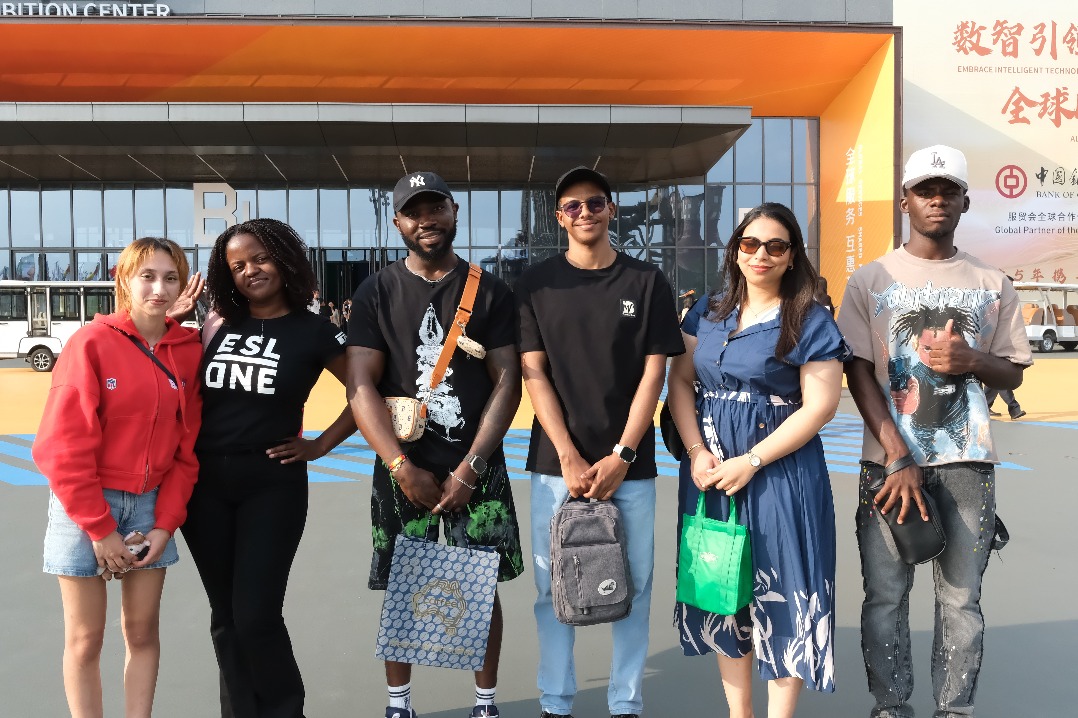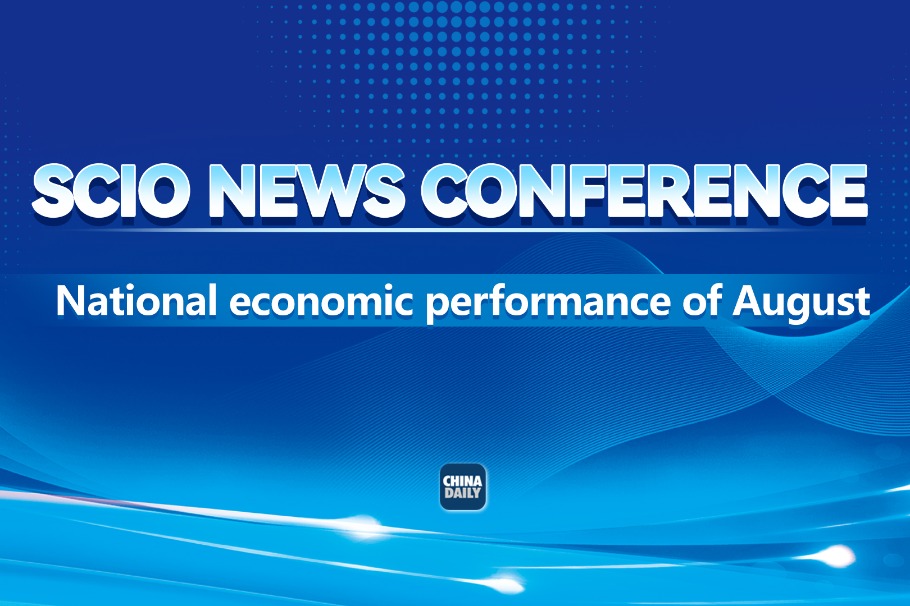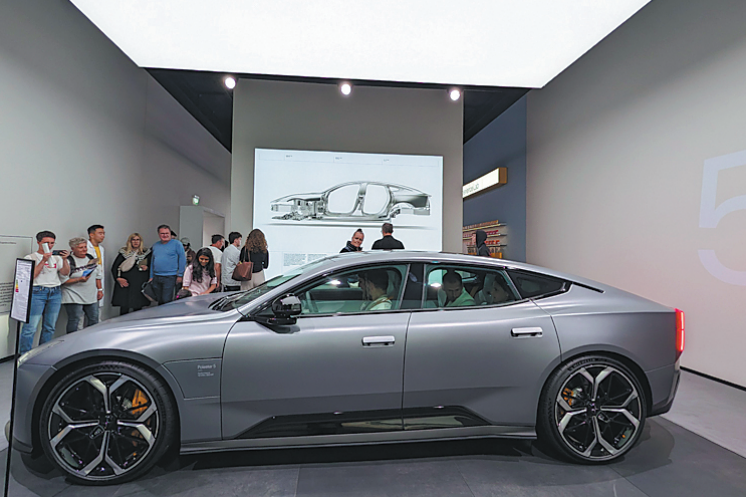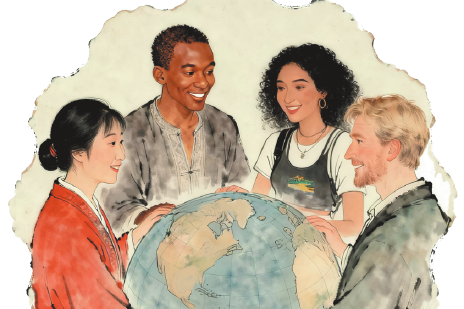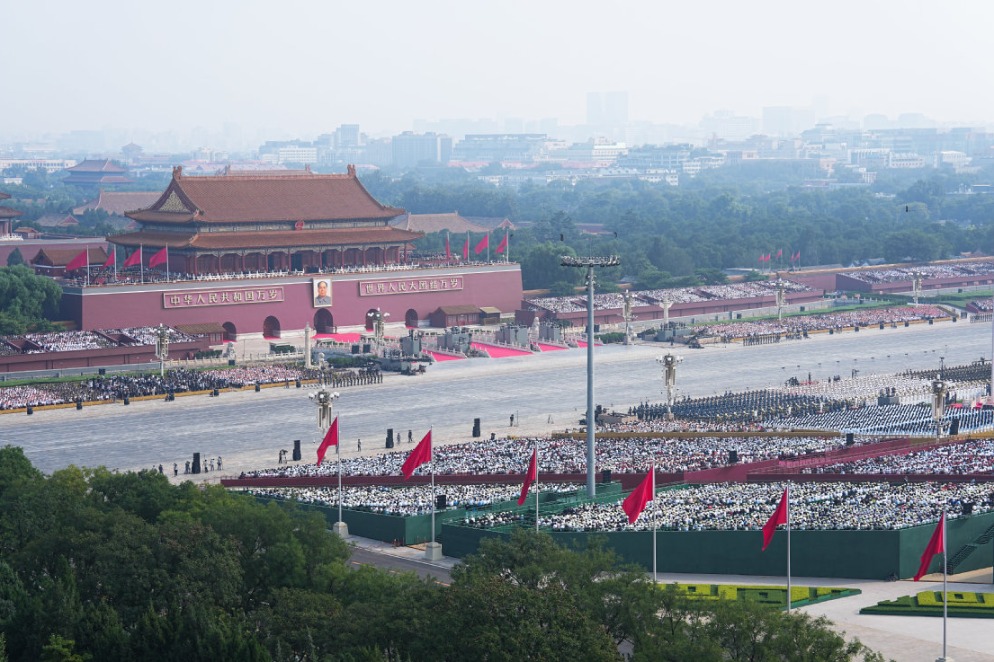Finding their feet


Autonomy and Economy: common aspirations for Middle Eastern nations
The year 2022 was extraordinarily volatile for the Middle East. The Russia-Ukraine conflict worsened the food security crisis in the region. Both the United States and Russia stepped up their diplomatic engagement in the region, rallying more support from their respective allies. To reduce dependence on Russian oil and gas, Europe's major powers strengthened cooperation with Middle Eastern countries. India has vigorously expanded its footprint in the Middle East, playing a pivotal role in the Quad (a strategic security dialogue between Australia, India, Japan and the United States) and the I2U2 Group (a grouping of India, Israel, the United Arab Emirates and the US).Amid the major power competition, Middle Eastern countries have maintained their strategic autonomy, upholding the principles of strategic hedging and a restructuring and re-balancing of power. Overall, Middle East players have moved from confrontation to detente, but the situations are still intense in certain parts. Maintaining peace and promoting development have become a common desire of all countries in the region. The Middle Eastern countries are of great significance to China's global diplomacy and China-Middle East cooperation has been brought to new heights.
Following the sudden onslaught of the COVID-19, the world's major countries started to walk away from the Middle East, with declining desire and shrinking capability to participate in regional affairs. For instance, the US withdrew its troops from Afghanistan in 2021, and Russia reduced its military footprints in Syria and Libya. The Russia-Ukraine conflict that started in 2022, however, has altered the major-country relations among the US, Russia, the United Kingdom, the European Union and India. The Middle East has been elevated to a strategic region and major countries are vying for influence.
The Middle East has secured a more important status in the US' global strategic deployments. The Joe Biden administration has been vigorously amending the US' relations with its allies in the Middle East, by forging a holistic alliance in security, energy, technology and economy, consolidating a united front against Russia and Iran, and pressing ahead with a "Middle East NATO". Its first move was to strengthen the Middle East Strategic Alliance by holding a summit with the leaders of Gulf Cooperation Council members, plus Egypt, Jordan and Iraq. Its second move was to establish the Middle East Air Defense Alliance, which connects the air defense forces of the US, Israel and US-aligned Arab states. The third move was to establish new quadrilateral group, I2U2, which connects its allies in the Middle East with its allies in the "Indo-Pacific" region.
Since the outbreak of the "Arab Spring", the Middle East has been divided into several power centers — the traditional Islamic alliance led by Saudi Arabia, the pro-Brotherhood grouping led by Turkiye, the axis of resistance led by Iran and an alignment of pro-U S moderate states initiated by Israel. In 2022, countries in the Middle East have pursued interaction and reconciliation, among which many moves are groundbreaking, a signal that relations between the three regional powers, Arab states, Israel and Turkiye, are improving at an accelerated pace. Israel took the lead in setting up the Negev Forum, which has promoted cooperation with Arab states that have established diplomatic ties with Israel.
Relations within the Arab world have also shown signs of reconciliation. Members of the Arab League have displayed greater solidarity, with peace and development becoming a common aspiration for all parties. A number of Middle Eastern countries have put forth their respective goals and schedules for achieving carbon peaking and carbon neutrality. In November 2022, the 27th session of the Conference of the Parties to the United Nations Framework Convention on Climate Change, or COP 27, was held in Egypt. Qatar hosted a successful FIFA World Cup, putting the nation in the global spotlight with the successful practice of "lesser power for greater diplomacy". Saudi Arabia put forward the Green Saudi and Green Middle East initiatives. The United Arab Emirates will host COP 28 in 2023.
The global oil and gas prices spiked on the heels of the outbreak of the Russia-Ukraine conflict. The financial conditions of oil-producing countries in the Middle East have greatly improved; the sovereign wealth fund of Gulf Arab states has increased; and Middle Eastern countries have evolved from "little brothers" seeking support from major powers to "equal partners "courted by major powers.
In general, the Middle Eastern countries have upheld strategic hedging featured by multi-polarization of global politics and economic diversification. On the one hand, they have maintained conventional security and defense pacts with the US-led Western nations to consolidate existing cooperation. On the other hand, they have boosted pragmatic cooperation with Russia, China and India to expand energy and investment profits. The Middle East is no longer the US backyard, and US allies in the region have stopped following every instruction that Washington gives — all countries have notably increased the awareness of strategic autonomy with stronger confidence that the Middle Eastern peoples are masters of the their land.
China achieved a bumper harvest with its diplomacy in the Middle East in 2022. Against the backdrop of profound adjustments in major-country relations, China and the Middle Eastern countries have always supported and assisted each other, sharing weal and woe and jointly implementing the Global Development Initiative and the Global Security Initiative. At the start of 2022, the foreign ministers of Saudi Arabia, Bahrain, Kuwait, Oman, Turkiye and Iran visited China, a sign that Middle Eastern countries have collectively shifted from "looking to the East "to "marching toward the East".
From Dec 7 to 10 in 2022, Chinese President Xi Jinping attended the first China-Arab States Summit and the China-GCC Summit and paid a state visit to Saudi Arabia. The China-Arab States Summit was the first one that the Arab League has held with a sovereign state, ushering in a new era in China-Arab relations. According to the Outline of the Comprehensive Cooperation Plan Between China and Arab States, China will, in the next three to five years, work with the Arab side to advance eight major cooperation initiatives in the areas of development, food security, public health, green innovation, energy security, inter-civilization dialogue, youth development, security and stability. From the Tianjin Declaration in 2010, to the Beijing Declaration in 2018, and then to the Riyadh Declaration in 2022, China-Arab relations have been constantly upgrading and updating.
At the first China-GCC Summit, China and GCC countries announced they would strengthen the China-GCC strategic partnership. The two sides issued a 2023-2027 action plan for strategic dialogue, which stresses that China and the GCC countries should be partners for greater solidarity, shared development, common security and cultural prosperity, and push forward bilateral cooperation in such priority areas as new energy, new economy, new technologies and new infrastructure.
Saudi Arabia was a focal point of President Xi's successful Middle East trip. China and Saudi Arabia signed a long-term plan for the comprehensive strategic partnership agreement, and agreed to take turns to host biennial meetings between the heads of state of the two countries. The two sides agreed to upgrade the China-Saudi Arabia High-level Joint Committee to the prime minister's level and signed an implementation plan to synergize China's Belt and Road Initiative and Saudi Arabia's Vision 2030.
Looking ahead, the Middle Eastern countries will seek new progress amid great changes in 2023. Turkiye will celebrate the centenary of its founding of the republic and hold the general election in June. Benjamin Netanyahu has returned as the prime minister of Israel, inaugurating a new government. Iran is vigorously coping with internal and external challenges in an all-out effort to get out of its dilemma. The majority of Arab states have realized succession of the new to the old, and are exploring development paths suited to their own national conditions based on their medium- and long-term development goals. Thus peace and development are just over the Middle Eastern horizon.
The author is a researcher and director of the Center for Middle Eastern Studies at Fudan University. The author contributed this article to China Watch, a think tank powered by China Daily.
Contact the editor at editor@chinawatch.cn.

















